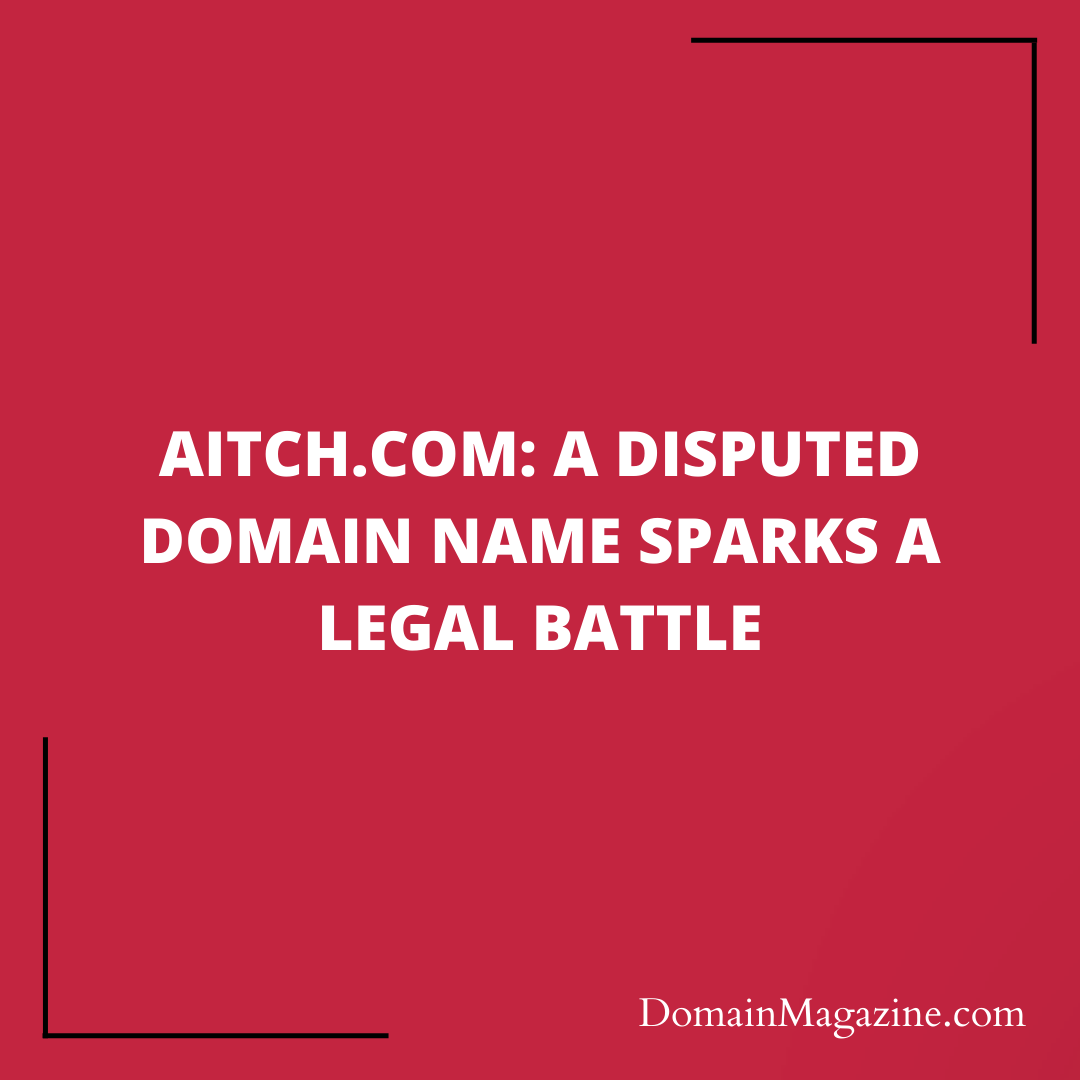Recently, a case involving the domain name <aitch.com> caught the attention of the online community. This intriguing case revolves around a property developer in London and a valuable digital property that has been up for sale. Let’s dive into the details of this dispute and the panel’s decision.

Background:
The Complainant, a property developer based in London, owns a European Union trademark registration for the word “AITCH,” registered on September 4, 2014. On the other side of the table is the Respondent, the owner of the disputed domain name <aitch.com>, which was registered back in November 2000. The domain currently redirects to a listing page on the BrandBucket website, offering it for sale at a hefty price of USD $31,820 or for lease at USD $2,918 per month. The listing describes it as a short, technical name with a nod to ‘AI,’ suitable for various industries.
Key Facts:
- The Complainant’s trademark for “AITCH” was registered in 2014, six years after the disputed domain’s registration in 2000.
- Sporadic email negotiations between the Complainant and BrandBucket regarding the domain took place between 2021 and 2013 but did not result in a deal.
- The Complainant alleges that the domain was registered in bad faith to sell it for a profit.
- The Respondent argues that “AITCH” is a common noun used by many companies and is, therefore, a valuable digital asset.
- The Complainant failed to provide evidence of its reputation or common law rights regarding the term “AITCH.”
Panel’s Decision:
Mr. John Swinson, the appointed panelist, examined the case carefully and reached the following conclusions:
- The Complainant did not provide evidence of using the “AITCH” trademark before November 2000, the registration date of the disputed domain.
- The Complainant also failed to demonstrate why the Respondent would have been aware of their trademark or the disputed domain.
- There was no evidence of bad faith use by the Respondent over the 22 years following the domain’s registration.
- The fact that the domain was listed for sale at a certain price did not, by itself, prove bad faith.
Conclusion:
In this case, the panel determined that the Complainant had not provided sufficient evidence to establish their case. The disputed domain, <aitch.com>, was registered in 2000, while the Complainant’s trademark came into existence in 2014. The lack of evidence regarding the Complainant’s reputation and common law rights weakened their position.
The panel did not find evidence of bad faith use or registration by the Respondent. Despite the domain’s listing for sale at a relatively high price, it was not seen as conclusive evidence of bad faith. Therefore, the complaint was denied.
This case serves as a reminder that, in domain disputes, evidence and timing can play a crucial role in determining the outcome. It highlights the importance of presenting a well-substantiated case when seeking to claim a domain name from its current owner.
Read full case here: https://www.wipo.int/amc/en/domains/decisions/pdf/2023/d2023-2381.pdf


Join the Discussion